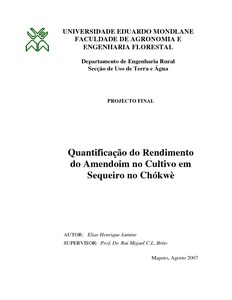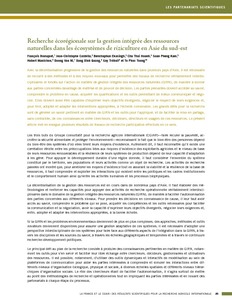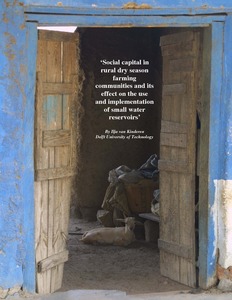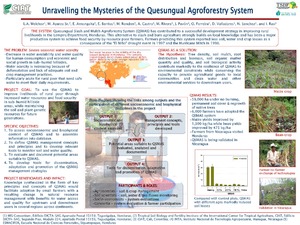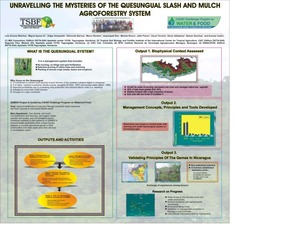Recherche écorégionale sur la gestion intégrée des ressources naturelles dans les écosystèmes de riziculture en Asie du sud-est
Screening for intra and inter specific variability for salinity tolerance in pigeonpea (Cajanus cajan) and its related wild species
The possibilities for dryland crop yield improvement in India's semi-arid regions: observations from the field
Agriculture, resource management and institutions : A socioeconomic analysis of households in Tigray, Ethiopia
Empirical investigation of the impact of institutional and socioeconomic factors on agricultural productivity and natural resource conditions is important for an informed evaluation of current policies, and to identify areas for future improvements. In this line, the current study addresses three topics of relevance to the process of agricultural intensification and natural resource management in the context of the less-favoured Highlands of Tigray, Ethiopia.
Leaving two thirds out of development: Female headed households and common property resources in the highlands of Tigray, Ethiopia
This report contains the results of a study of gender and access to forest and tree resources, women and men’s use of common lands and botanical resources, and the importance of these resources for the livelihoods of people in highland Ethiopia.
Children’s property and inheritance rights and their livelihoods: The context of HIV and AIDS in Southern and East Africa
This paper focuses on legal and institutional aspects of children’s property and inheritance rights in Southern and East Africa. Chapter 2 discusses violations of children’s property and inheritance rights and discusses how the spread of HIV/AIDS has contributed to the violations. Chapter 3 assesses several norms of customary law that aim to protect children’s property and inheritance rights as well as the current practices of customary law that—in the context of the HIV/AIDS pandemic—serve to complicate and limit children’s ability to maintain their rights.
Changes in in "customary" land tenure systems in Africa
Across rural Africa, land legislation struggles to be properly implemented, and most resource users gain access to land on the basis of local land tenure systems.
Cherish the Earth
In the course of the present century, the world population has increased from less than two thousand million to over five and a half thousand million. Until one hundred years ago, the expanding population's increasing needs for food, fuel, fibre and construction materials were met from the land by cultivating progressively larger areas. In the course of the next twenty-five years a further two thousand million people will be added to the global population. Most of these people will live in the tropics.

